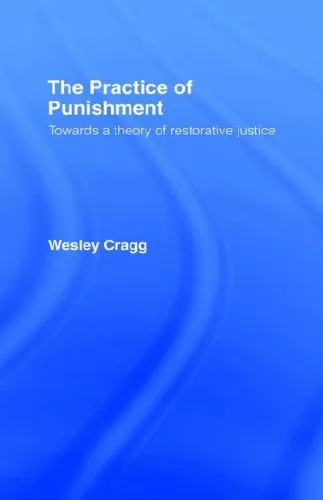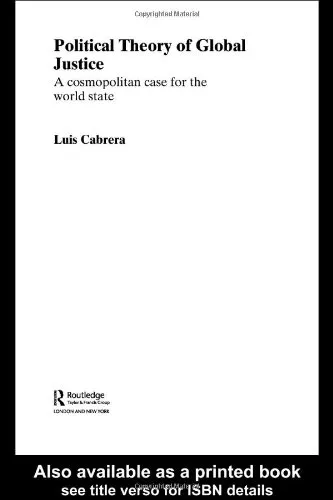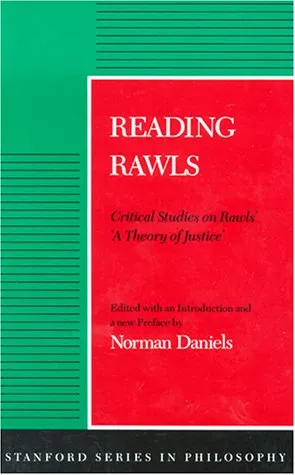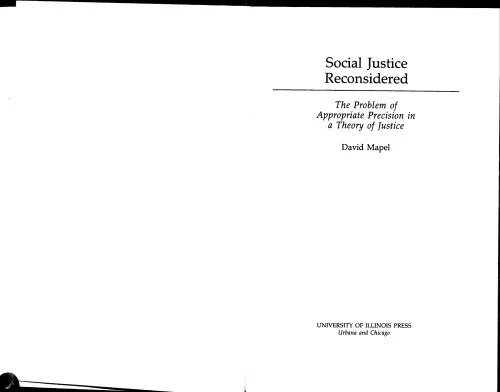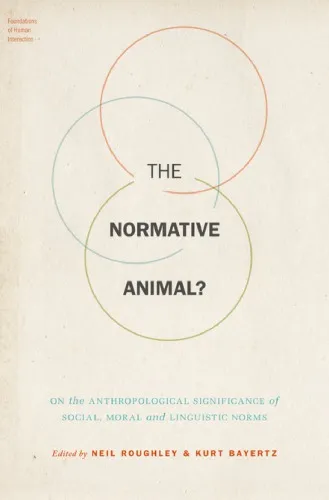The Practice of Punishment: Towards a Theory of Restorative Justice (Readings in Applied Ethics)
4.9
Reviews from our users

You Can Ask your questions from this book's AI after Login
Each download or ask from book AI costs 2 points. To earn more free points, please visit the Points Guide Page and complete some valuable actions.کتاب های مرتبط:
Introduction to "The Practice of Punishment: Towards a Theory of Restorative Justice"
Welcome to an exploration of justice reform through the lens of my work, "The Practice of Punishment: Towards a Theory of Restorative Justice." This book presents a thorough examination of the traditional punitive justice system and proposes a transformative framework through restorative justice. Delve into the nuances of accountability, repair, and community integration as alternatives to conventional punishment paradigms.
Detailed Summary of the Book
The book embarks on a critical journey, questioning the efficacy and ethical implications of conventional punishment. It contrasts traditional retributive justice with an emerging restorative justice model that emphasizes healing and rehabilitation. The core idea is that justice should not solely focus on punishing offenders but should also aim to restore the harm caused to victims and communities. The first few chapters dissect the origins and evolution of punishment philosophy, exploring its contingent socio-political frameworks. We traverse historical contexts that shaped modern legal systems, scrutinizing their shortcomings.
Midway through the book, the focus shifts to restorative justice principles, presenting concrete cases where this model has been successfully implemented. These examples highlight alternative court systems like community service boards and victim-offender mediation programs, which prioritize dialogue and constructive resolution over incarceration. The closing chapters are a call to action for policymakers, legal professionals, and civil society to consider and adopt restorative practices. Here, you’ll find a comprehensive argument for integrating these concepts into the broader legal framework, thereby laying the groundwork for a more equitable justice system.
Key Takeaways
- Restorative justice is a collaborative process that involves victims, offenders, and community members in meaningful dialogue for reconciliation.
- Traditional punishment often fails to address the root causes of crime, whereas restorative justice seeks to foster understanding and personal accountability.
- Integrating restorative practices can reduce recidivism and promote community cohesion and healing.
- Restorative justice provides a moral and ethical framework for responding to crime that is not solely punitive but rehabilitative.
Famous Quotes from the Book
"Justice is not about revenge. It's about creating an environment where healing, not hostility, is the natural outcome."
"Restorative justice is a journey of movement away from punishment to a tapestry woven of understanding and human connection."
Why This Book Matters
This book is an essential read for anyone interested in justice reform, emphasizing that punishment is not an effective deterrent for crime in isolation. As criminal justice systems worldwide are challenged to demonstrate more humane and socially constructive responses to wrongdoing, restorative justice offers a viable solution. This work provides both an academic foundation and practical guidance for stakeholders seeking to reframe justice systems. Legal practitioners, academics, policymakers, and activists will find this book a valuable resource that inspires systemic change aligned with ethical and social imperatives. By illustrating how restorative justice can be applied practically, the book serves as a beacon of hope for creating more equitable societies.
Free Direct Download
You Can Download this book after Login
Accessing books through legal platforms and public libraries not only supports the rights of authors and publishers but also contributes to the sustainability of reading culture. Before downloading, please take a moment to consider these options.
Find this book on other platforms:
WorldCat helps you find books in libraries worldwide.
See ratings, reviews, and discussions on Goodreads.
Find and buy rare or used books on AbeBooks.
1370
بازدید4.9
امتیاز0
نظر98%
رضایتReviews:
4.9
Based on 0 users review
Questions & Answers
Ask questions about this book or help others by answering
No questions yet. Be the first to ask!
